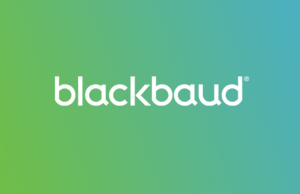The U.S. scored 4.6 on a scale of one through five for philanthropic freedom, finishing second to the Netherlands, according to a study produced by the Hudson Institute’s Center for Global Prosperity in Washington, D.C. The pilot study, called Philanthropic Freedom, measured 13 countries in three broad categories: the ease of registering and operating a civil society organization (CSO, the study’s term for nonprofit); domestic tax regulation; and cross-border flow regulation.
The Netherlands scored 4.8 out of 5. Other high-scorers were Sweden, Japan and Australia, all with scores of 4.3, and Mexico with a score of 4.1. China had the lowest score of the 13 countries at 2.2, followed by Egypt with 2.3 and Russia’s 2.5 score. Other countries in the study and their scores included: South Africa (3.9), India (3.8), Brazil (3.4) and Turkey (3.1)
The CGP administered a nine-question survey to 13 “country experts” for each of the countries in the study. All three categories — civil society regulation, domestic tax regulation and cross-border regulation — were weighed in equal measure and averaged to determine a composite score.
The domestic tax regulation metric measures the government-provided incentives for donors and corporations, as well as the process of obtaining tax benefits. The Netherlands, with its score of 4.6, had the highest score, followed closely by the United States at 4.5. Turkey, China and Russia scored the lowest, at 2.3, 2.4 and 2.9, respectively. “While all three countries provide tax incentives for donors, the process of receiving these deductions is very difficult, and the organizations that can receive tax deductible donations are limited. Furthermore, the tax benefits of CSOs are available to only a few organizations,” wrote the report’s authors.
Four countries — Japan, the Netherlands, Sweden and the United States — received scores of 5 in the first category, that of civil society regulation. Australia and Mexico both received scores of 4.8. This category measured the ease of registering, operating and dissolving a nonprofit. Countries with the highest scores had the fewest barriers to register a nonprofit, fewer restrictions on how a nonprofit should operate, and have judicial oversight and appeal options if nonprofits are targeted for involuntary termination. Egypt scored the lowest at 2.0, followed by China’s 2.2 score and Russia, with a score of 2.7.
The domestic tax regulation metric measures the government-provided incentives for donors and corporations, as well as the process of obtaining tax benefits. The Netherlands, with its score of 4.6, had the highest score, followed closely by the United States at 4.5. Turkey, China and Russia scored the lowest, at 2.3, 2.4 and 2.9, respectively. “While all three countries provide tax incentives for donors, the process of receiving these deductions is very difficult, and the organizations that can receive tax deductible donations are limited. Furthermore, the tax benefits of CSOs are available to only a few organizations,” wrote the report’s authors.
The final score, cross-border flows regulation, measured the ease in which individuals and organizations can send and receive donations to and from international organizations. The Netherlands and Sweden scored highest at 4.8, with the United States scoring 4.3, mainly due to the IRS’s practice of equivalency determination. “The restrictions on international giving from (U.S.) foundations have increased since 9/11 in an effort to prevent the flow of funds to terrorist organizations,” wrote the authors. China, Russia and Egypt all scored 2.0. In China and Russia, there are no tax deductions available for international donations, while in Egypt, government approval is required for cross-border giving.










